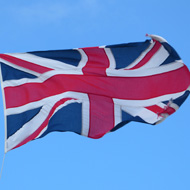Life after Brexit

The results have created shockwaves in the UK and Europe, leaving many asking: what next?
The UK has voted to leave the European Union (EU) in a landmark referendum that saw more than 30 million people cast a vote. The leave side won with 51.9 per cent, despite Scotland, Northern Ireland and London voting to remain.
David Cameron announced this morning that he will step down as Prime Minister by October. He will stay short-term to "steady the ship" but believes "fresh leadership" is needed. His successor will carry out negotiations with the EU to invoke article 50 of the Lisbon Treaty and it will take the UK a minimum of two years to arrange its withdrawal.
The results have created shockwaves in the UK and Europe, leaving many asking: what next?
Key veterinary groups such as the BVA, RCVS, BSAVA and National Office of Animal Health (NOAH) have pledged to work with the government and relevant stakeholders to ensure the voice of the veterinary profession is heard and to ensure the best outcomes for not only the profession, but also animal health and welfare.
And so begins a period of change. Undoubtedly the outcome of the referendum will have a bearing on numerous issues affecting veterinary professionals - from education, regulation and the workforce to scientific research, animal welfare and farming. Speculation is rife but, of course, we cannot yet predict the impact of leaving the EU.
The seed has been sown and what remains is to look ahead, be united as a country and explore the opportunities available to us as we begin to lay the building blocks for our future.
As Mr Cameron said in his closing statement this morning: "I said before that Britain can survive outside the European Union and indeed that we could find a way. Now the decision has been made to leave, we need to find the best way and I will do everything I can to help."



 The veterinary mental health charity Vetlife is inviting the veterinary community to join it for a sponsored cold-water dip.
The veterinary mental health charity Vetlife is inviting the veterinary community to join it for a sponsored cold-water dip.